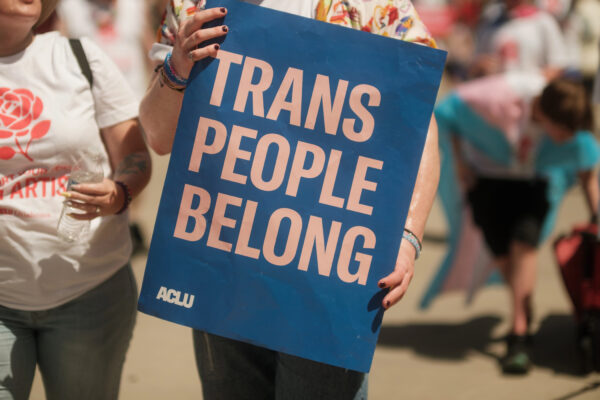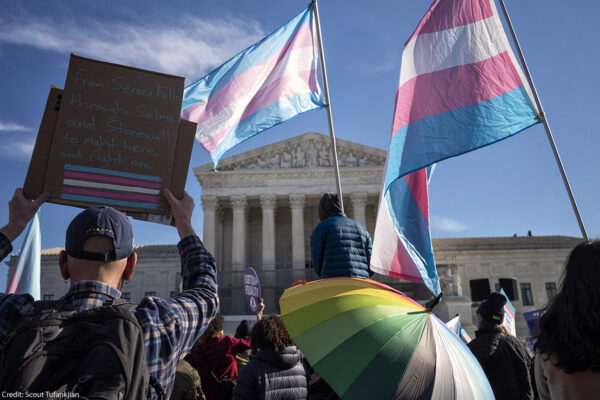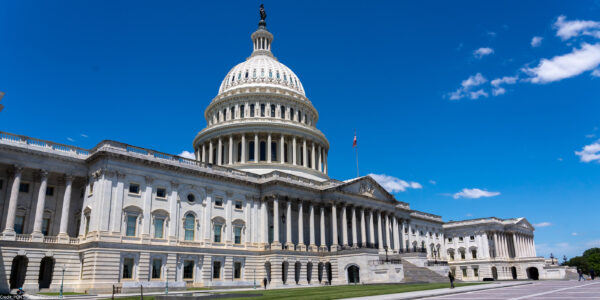Attorneys Urge California Supreme Court To Invalidate Prop 8
Case Raises Important Legal Issues Affecting All Minority Groups
FOR IMMEDIATE RELEASE
CONTACT: (212) 549-2666; media@aclu.org
SAN FRANCISCO - Attorneys for same-sex couples, civil rights organizations and the state Attorney General’s office appeared before the California Supreme Court today to urge the court to strike down Proposition 8, which took away the right of same-sex couples the right to marry. At issue in the case is whether the ballot initiative process can be used to take away a fundamental right only for one group of Californians based on a trait – in this case sexual orientation – that has no relevance to the group’s ability to participate in or contribute to society. Because the case has serious implications for the constitutional rights of all Californians, it has generated unprecedented support from many national and state civil rights groups as well as California legislators, local governments, bar associations, business interests, labor unions, and religious groups. The California Supreme Court, which has struck down several other initiatives in the past, is expected to issue a decision within 90 days.
“Proposition 8 jeopardizes not just the right of same-sex couples to marry, but the rights of all Californians to be treated as free and equal citizens of this state,” said Shannon P. Minter, Legal Director of the National Center for Lesbian Rights (NCLR), who argued the case before the Court. “Our Constitution is based on the principle that majorities must respect minority rights. But if a majority can change the Constitution to take away a fundamental right from one group, then it can take away fundamental rights from any group. Our government will have changed from one that respects minority rights to one in which the power of the majority is unlimited.”
NCLR, Lambda Legal, and the ACLU filed the legal challenge on November 5, after Proposition 8 was approved by just 52 percent of the voters on Election Day. In court today, the groups argued that it was improper for the proponents of Proposition 8 to use the ballot initiative process to strip same-sex couples of the fundamental right to marry. The groups contend that changes to the Constitution that alter its core requirement of equal protection by selectively depriving minorities of fundamental constitutional rights cannot be accomplished through a simple majority vote. Such major changes of core structural principles are revisions to the Constitution that can only be put on the ballot by a two-thirds vote of both houses of the legislature.
"It is simply wrong—legally and socially—to short-circuit the California Constitution and its equal protection guarantees," said Jennifer C. Pizer, Marriage Project Director for Lambda Legal and co-counsel in the legal challenge to Proposition 8. "Proposition 8 is no 'garden variety' amendment that changes a tax or zoning or safety rule in a way that affects everyone equally. This is a radical attempt to strip a cherished constitutional right from just one targeted minority group and then to stop the courts from doing their most basic job of upholding the constitutional promise of 'liberty and justice for all'.”
The case before the court is unprecedented because no other initiative-amendment has successfully taken away a fundamental right only for a particular minority. Because Proposition 8 would, for the first time, change the Constitution in a way that strips a minority group of its constitutional right to equal treatment under the law, California Attorney General Jerry Brown agrees that Proposition 8 should be struck down. The Attorney General’s office argued that the right to marry is an “inalienable right” that can not be selectively eliminated from one group without compelling reasons.
“The Court has a solemn responsibility to enforce our state constitution and to protect the rights of all people, regardless of popular opinion,” said Elizabeth Gill, a staff attorney with the ACLU of Northern California. “This case isn’t just about marriage, and it’s certainly not just about gay and lesbian couples. If the Court strikes down Proposition 8, it will be protecting the civil rights of all Californians.”
An unprecedented 43 friend-of-the-court briefs, representing hundreds of religious organizations, civil rights groups, and labor unions, and numerous California municipal governments, bar associations, and leading legal scholars, were filed in the case, urging the court to strike down the initiative. Because the issues at stake have such important implications for other minority groups, Raymond Marshall of Bingham McCutchen, who represents the Asian Pacific American Legal Center, the California State Conference of the NAACP, the Equal Justice Society, the Mexican American Legal Defense and Educational Fund, and the NAACP Legal Defense and Educational Fund, asked and was given permission to appear in court today. He argued that allowing Proposition 8 to stand could be detrimental to other minority groups who could easily become the targets of initiative campaigns seeking to take away their rights.
"Our state Constitution was created to ensure equal treatment under the law for every Californian,” said Geoff Kors, Executive Director of Equality California. “Prop 8 changes that fact by taking away a fundamental freedom from one particular group and mandating government discrimination against a minority. We hope the court upholds the Constitution's promise of equality."
The National Center for Lesbian Rights, Lambda Legal, and the ACLU are representing Equality California, whose members include many same-sex couples who married between June 16 and November 4, 2008, and six same-sex couples who want to marry in California. The arguments today also included two other challenges filed on the same day: one filed by the City and County of San Francisco (joined by Santa Clara County and the City of Los Angeles, and subsequently by Los Angeles County and other local governments); and another filed by a private attorney.
Serving as co-counsel on the case with NCLR, Lambda Legal, and the ACLU are the Law Office of David C. Codell, Munger, Tolles & Olson LLP, and Orrick, Herrington & Sutcliffe LLP.
The case is Strauss et al. v. Horton et al. (#S168047).
The California Supreme Court must issue its decisions within 90 days of oral argument.




